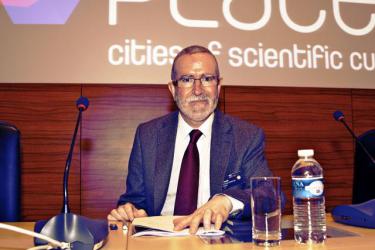- Local/national conference
Over 70 European policymakers and more than 60 science communicators gathered in Paris, France, to talk science communication policies for European cities and regions. The pairing of science communicators and policymakers comes from the innovative approach of the European FP7-funded project, PLACES, which is striving to define the European City of Scientific Culture. The nine central conclusions drawn from the two-day conference are:
- Science communication policy is not a secondary concern and should be recognized as an invaluable part of European research and innovation.
- Science communication must involve all relevant public and private actors, as well as citizens, in a spirit of co-creation and co-ownership.
- Science communication should display science as an on-going and truth-seeking human activity which also enhances curiosity about the unknown.
- To develop science communication policies, European cities and regions should build on their historic, geographic and economic contexts, and focus on their immediate challenges and target areas of social need.
- Science communication policies should extend from strong local and regional leadership to address long-term science perspectives with short-term political priorities.
- EU competitiveness requires that European cities and regions move to a more knowledge-based economy which incorporates science communication strategies and policies.
- The Europe 2020 Strategy and its Flagships, such as the Innovation Union, drive EU research and innovation policy. Science communication must understand and embed itself in these overarching strategies.
- Regional/city stakeholders from different backgrounds and sectors can align to stimulate funding for strong science communication policies.
- More sophisticated and objective tools to measure the socioeconomic impacts and benefits of science communication must be developed and applied.
These nine points are all areas where the PLACES project can play a major role over the next three years. The project will approach these points by:
- developing a community of science communicators and policy makers at the local and regional levels,
- disseminating best practices in science communication policymaking,
- building partnerships with more focused objectives through PLACES’ nine Thematic Working Groups,
- conducting activities and debates driven by the PLACES Regional Science Cities Workshops, PLACES annual conferences, and especially through the PLACES OPEN Platform which will allow for a centralized online stakeholder community, and
- drafting concrete recommendations to the European Commission for future EU policy in the area of science communication policymaking.
The conference was convened by the European Regions Research and Innovation Network (ERRIN) in collaboration with Ecsite, the European network of science centres and museums, which is the leading partner of the PLACES project.


